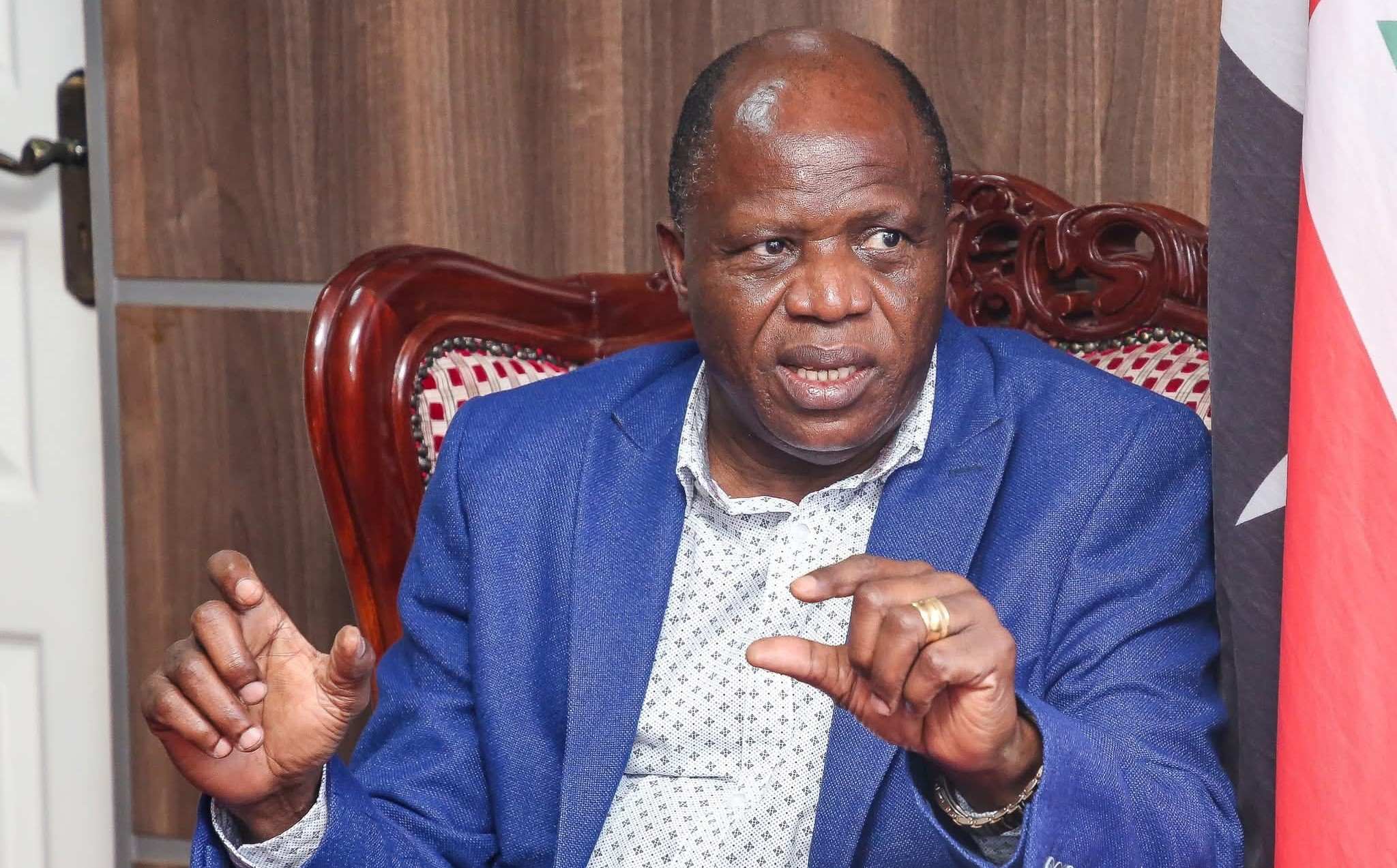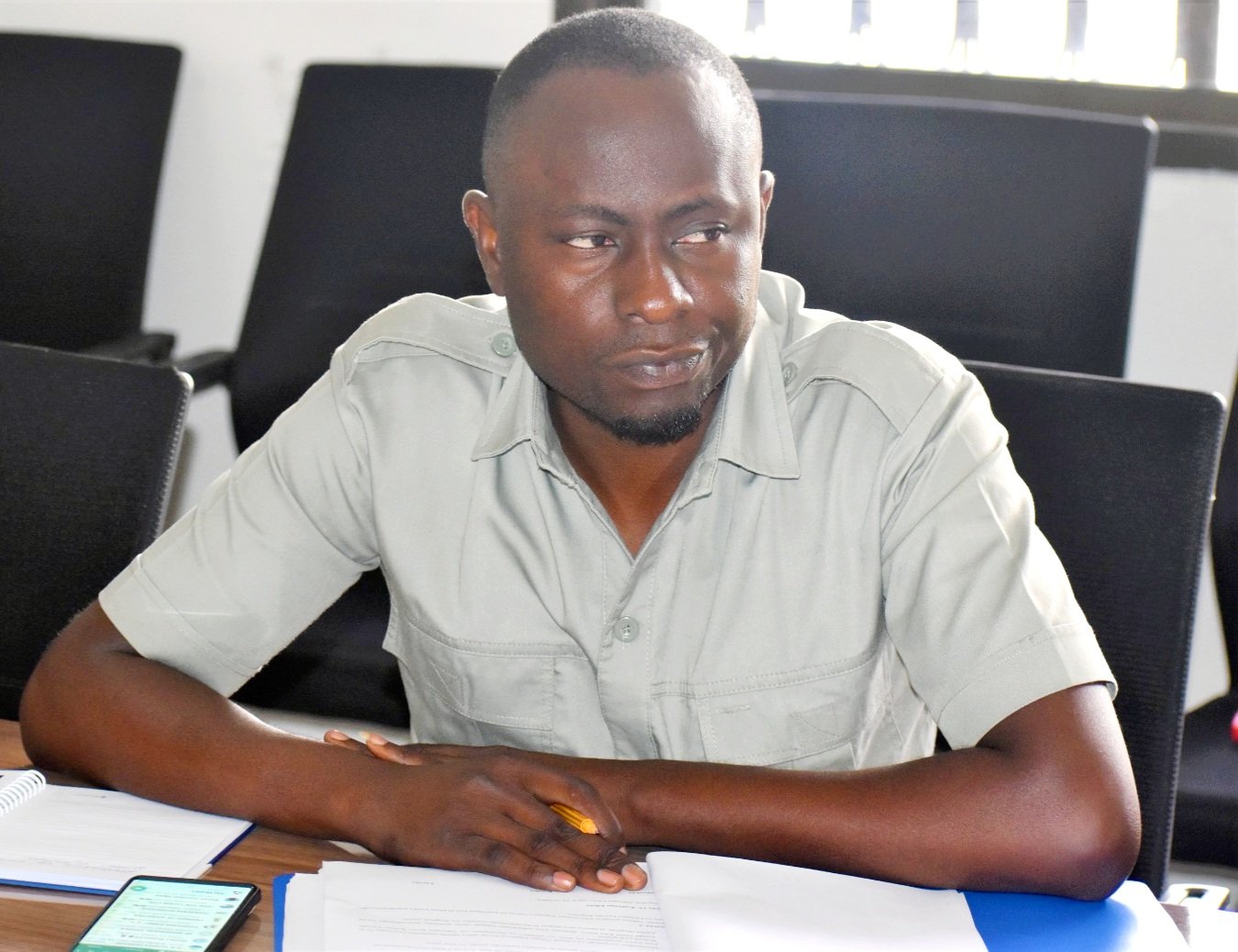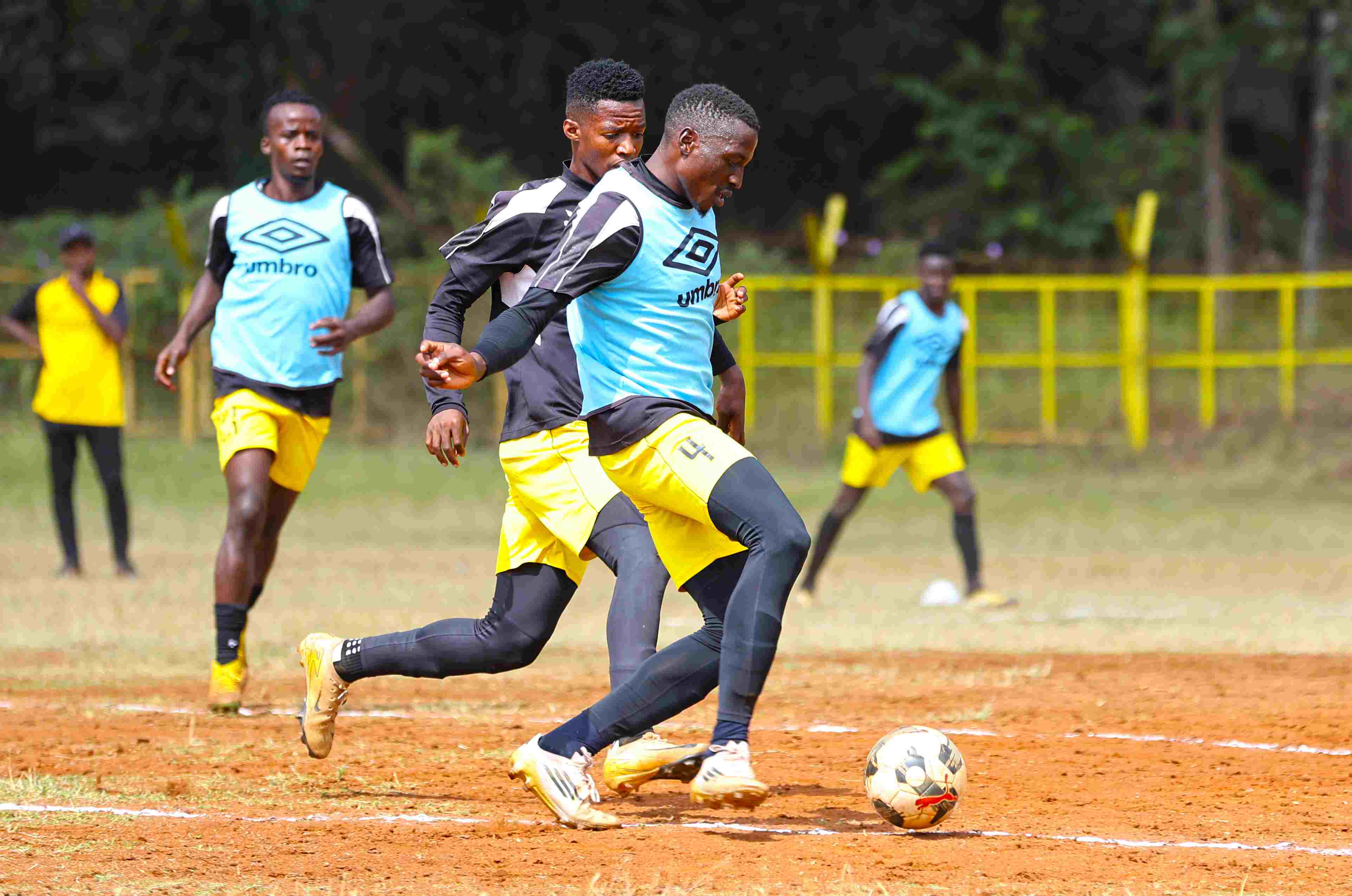'Power of Everyone’ Malaria campaign brings new hope to communities in Kilifi
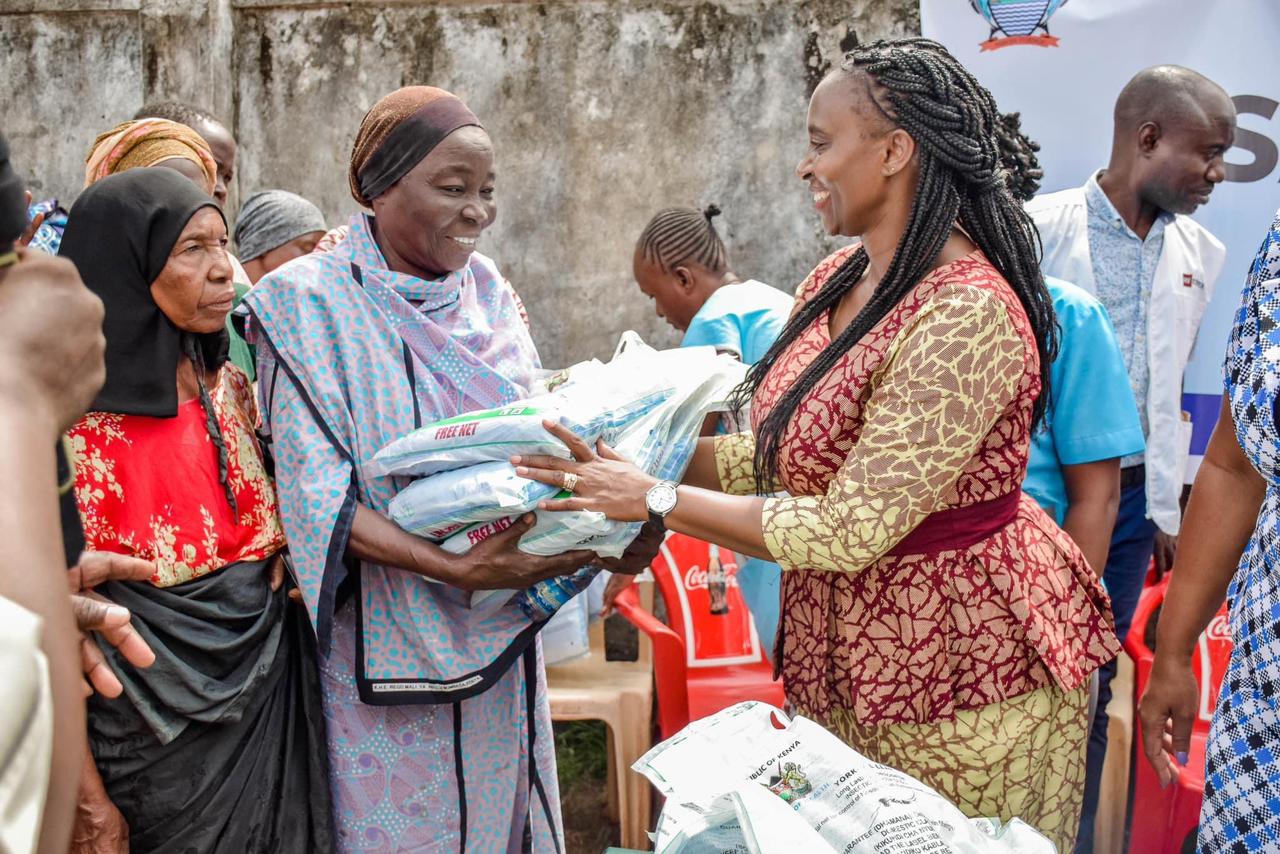
The Kenya Indicator Survey 2020 highlights that the coastal region has the second-highest malaria prevalence in Kenya at 5 per cent, trailing the Lake Victoria region at 19 per cent.
Residents of Kilifi County, grappling with high malaria rates due to their proximity to dams and forests, are finding new hope through the ‘Power of Everyone’ Campaign.
The initiative, a partnership between the National Government and Malaria No More UK (MNMUK), is providing crucial malaria prevention education directly to affected communities.
More To Read
- WHO warns of rising malaria threat in Kenya as mosquitoes develop insecticide resistance
- Kenya’s malaria cases jump 27 per cent to 4.1 million in 2025, WHO report reveals
- Study warns climate shifts could widen malaria risk across Africa
- First malaria drug for infants approved, to be rolled out in Africa within weeks
- Undocumented status, ID barriers hamper vaccine access for vulnerable mothers, children in Kenya
- Kenya receives 3 million BCG doses as Ministry of Health races to end vaccine shortage
In Kaloleni, a village severely impacted by malaria, Rehema Chengo, a mother of three, shares her relief.
“For years, my children suffered from malaria due to our location near the dam and the Kaya Forest. The campaign has taught us how to use mosquito nets properly and recognise early symptoms. My family feels much safer now,” she says.
The Kenya Indicator Survey 2020 highlights that the coastal region has the second-highest malaria prevalence in Kenya at 5 per cent, trailing the Lake Victoria region at 19 per cent.
In Kilifi County, areas like Ganze, Rabai, and Kilifi South are particularly vulnerable due to their proximity to water sources and dense vegetation.
John Kalume, a teacher in Ganze, has noticed significant changes in his community. “We used to think malaria was just a part of life here. Now, with the campaign’s resources and training, we’re seeing fewer cases. The community is more informed and proactive about preventing malaria.”
Another resident, Fatuma Sefu, a small-scale farmer in Ganze, appreciates the new knowledge. “Before the campaign, we didn’t understand how to protect ourselves from malaria. Now, we know about the importance of mosquito nets and clean surroundings. I have already noticed fewer cases of malaria among my neighbours.”
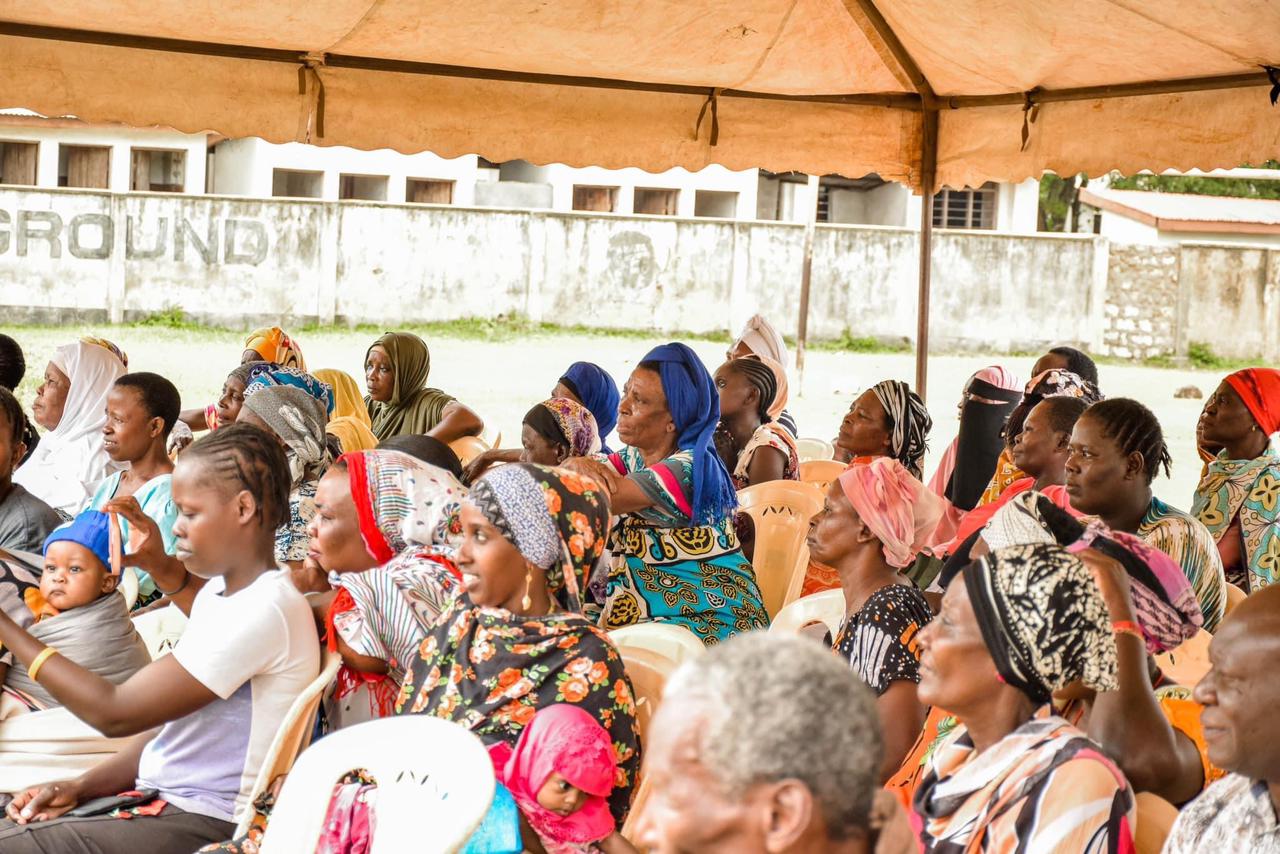 Vipingo residents when they received insecticide-treated nets (ITNs) in Kilifi on July 16, 2024. (Photo: Kilifi County Press)
Vipingo residents when they received insecticide-treated nets (ITNs) in Kilifi on July 16, 2024. (Photo: Kilifi County Press)
Positive shift
Elders in Rabai, such as Charo Nzai also see a positive shift. “The campaign has brought important information to our village. We have started using mosquito nets more consistently and are more aware of malaria symptoms. It is a relief to see fewer people falling ill.”
National Malaria Control Program Officer James Sang highlights the campaign’s broader goals. “Our objective is to educate communities and stakeholders through the ‘zero malaria starts with me’ coalition. Securing sufficient resources for prevention and treatment remains a challenge. We are encouraging greater investment in malaria control.”
He mentioned that the primary obstacle in combating malaria in Kenya is the lack of resources needed to implement various strategies, including distributing nets to curb the disease's spread.
Sang also addresses issues related to mosquito net use and self-medication. “Educating the community about the correct use of mosquito nets and the importance of seeking medical care rather than buying drugs from shops is essential. We are addressing these challenges through our campaign.”
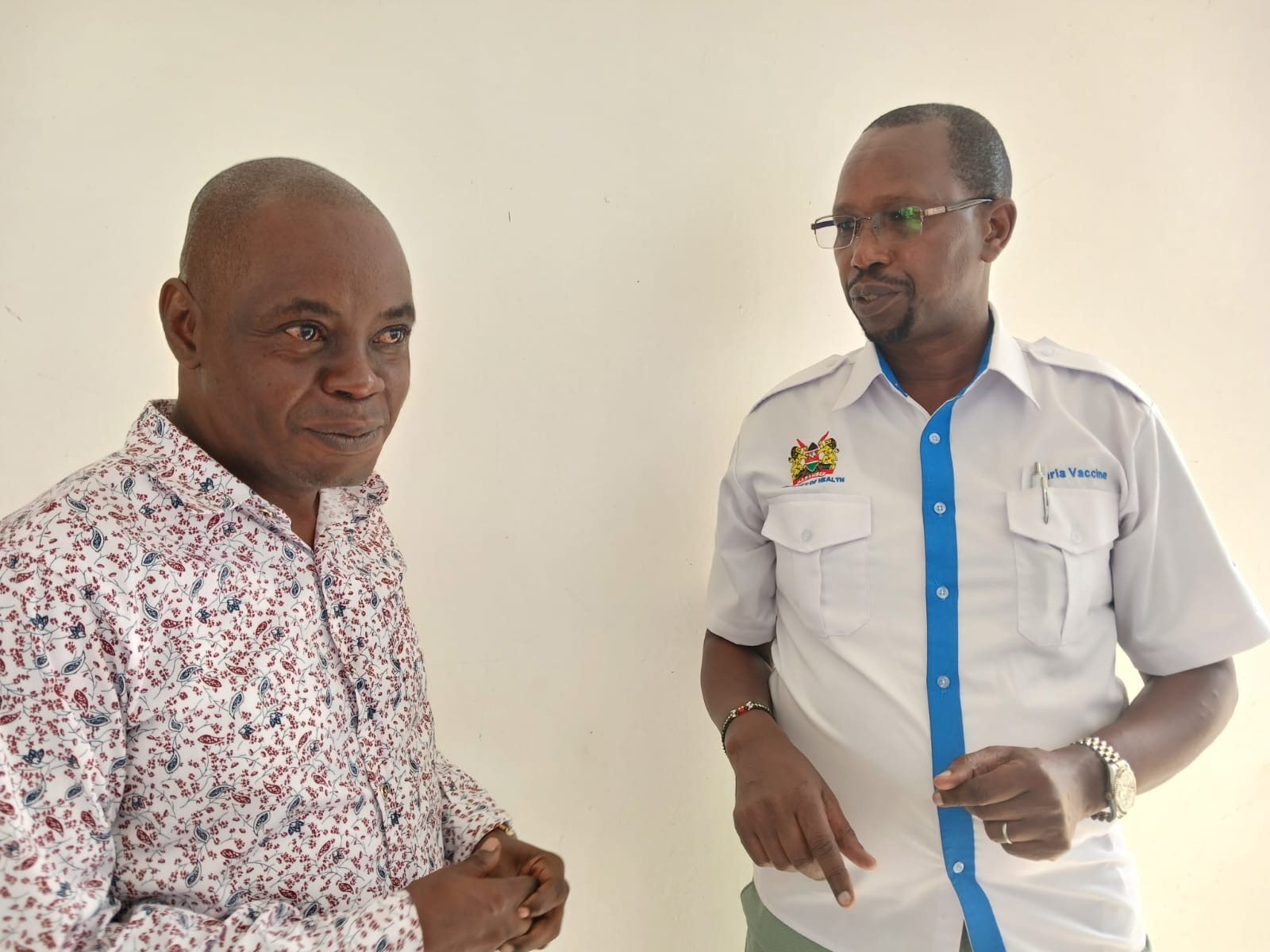 Kilifi County Malaria Control Coordinator Chimanga Mwamuye (left) and the National Malaria Control programme officer James Sang during a media training on Malaria in Kilifi County. (Photo: Farhiya Hussein)
Kilifi County Malaria Control Coordinator Chimanga Mwamuye (left) and the National Malaria Control programme officer James Sang during a media training on Malaria in Kilifi County. (Photo: Farhiya Hussein)
"We need to keep pushing hard to reduce the rate from 5 per cent to below 1 per cent, similar to other counties, and strive to reach zero."
Kilifi County Malaria Control Coordinator Chimanga Mwamuye elaborates on local initiatives. “We distribute free mosquito nets to pregnant women and parents with young children. Our community health promoters are trained to assess and treat malaria cases locally, reducing the burden on hospitals.”
He noted that in Kilifi, they are running a campaign named 'Love on Site Spring' which involves working with stakeholders to support health officers and Community Health Promoters (CHPs) who travel around the community to spray dams that are breeding grounds for mosquitoes.
The ‘Power of Everyone’ Campaign, launched nationally in February, is making strides in Kilifi, Kakamega, and Kisumu counties.
“Our goal is to mobilize every individual to contribute to eradicating malaria by 2030. It requires collective effort and responsibility from everyone,” The Africa Project Director of MNMUK Daniel Odipo said emphasising the campaign’s significance.
Odipo stressed the importance of prioritizing malaria and urged political leaders to address the issue, including discussions on funding, opportunities, and research. He mentioned that at the national level, there is a push for increased political commitment and investment in malaria prevention and treatment in Kenya.
Top Stories Today
